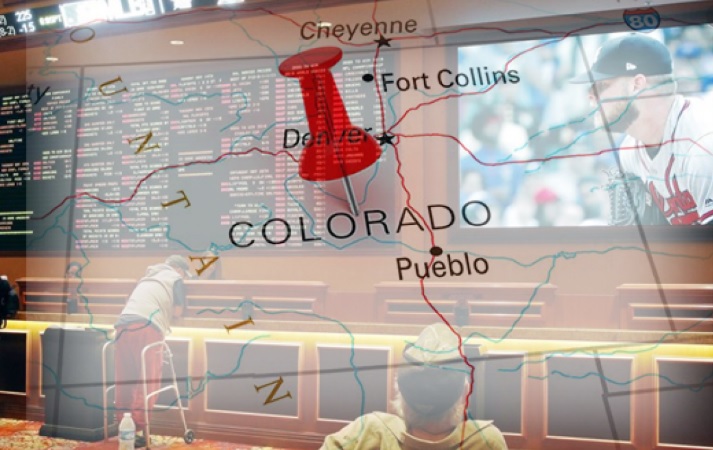A bill that would allow Gulfstream Park to operate its casino without any statutory obligation to live racing sailed through its first hearing on Wednesday in front of a Florida House of Representatives subcommittee.
The bill, which has the support of Gulfstream but is opposed by a large number of state and national racing organizations, passed easily out of the Industries and Professional Activities Subcommittee, which has 18 sitting members, with only four votes in opposition.
“It is not the legislature’s responsibility to force a business to operate a line of business that may not be profitable,” said Rep. Adam Anderson, the sponsor of the bill, just before the vote was taken.
Racing organizations opposed to the bill, which include the state’s horsemen’s and breeders’ groups, have said that passage of the legislation will lead to the closing of Gulfstream, one of two operating Thoroughbred tracks left in Florida.
Gulfstream’s owner, 1/ST Racing and Gaming, has told horsemen that if they support the bill, they will guarantee three more years of live racing, but company officials have not committed to live racing after that point and have said they are exploring options for redeveloping the property.
Rep. Yvonne Hayes Hinson, who represents Marion County, the home of Ocala, argued forcefully against the bill while reciting economic impact figures produced by studies funded by the Florida Thoroughbred Owners and Breeders Association.
“This bill will kill this county,” Hinson said.
Jena Antonucci, the trainer, spoke emotionally while giving testimony and said that allowing decoupling will lead to the closure of Gulfstream Park and would be “devastating” to the communities that rely on Thoroughbred racing.
“This will lead to less farm owners, less community, and less enrichment,” Antonucci said. “The racing is just a very small portion of what happens. Racing is what happens when everything goes right.”
Gulfstream Park is located in Hallandale Beach on extremely valuable land in the Miami metro area. If the legislation does not pass, nothing in existing state law would prevent 1/ST Racing from selling or redeveloping the property and closing the casino, which underperforms many of the existing casinos in the state. The casino operation at Gulfstream is limited by statutes that protect the state’s gambling compact with the Seminole Indian tribe.
Rep. Tobin Overdorf, who represents counties just north of the Miami-Ft. Lauderdale metro area, began his statement in support of the bill by saying that he “appreciates” the Thoroughbred industry and the people within in it, but he also said that Florida’s legislature should not stand in the way of business owners.
“As we go forward, we need to recognize something,” Overdorf said. “Florida is about business.”
Both sides of the debate brought up a bill passed in the spring last year that provided $15 million in state funding for Gulfstream to be used for capital improvements or purses, plus another $5 million in tax credits for Gulfstream’s fees to the Horseracing Integrity and Safety Authority. The bill also mandated $5 million in state aid for the breeding industry.
Hinson said that the legislature’s support for those subsidies and the effort to pass the decoupling bill was sending “mixed messages” to the racing industry. Overdorf, however, said that the subsidies would not be threatened by the passage of the bill, and that the breeding and racing industries have “a unique opportunity with this commitment to prove that Thoroughbred racing is here to stay.”
Lonny Powell, the executive director of the FTBOA, said that support for the bill will benefit a single entity – 1/ST Racing – while throwing the state’s entire racing and breeding industries into turmoil.
“A far as I know this is the only signature industry in Florida during this legislative session to be threatened with possible extinction,” Powell said. “I don’t know what we did to deserve that. What did the horse people do to be put in such a spot?”
Powell also pushed back on contentions that the bill would not lead to the eventual end of racing at Gulfstream Park.
“This is not a piece of paper that says everyone is going to continue to race,” Powell said. “This is a piece of paper that will allow thousands of people to lose their jobs and allow a 75-year-old industry in this state to be imperiled.”
Prior to the bill being advanced, the subcommittee voted to approve an amendment that would allow Tampa Bay Downs to decouple its card-room license from its racing license. The amendment was offered by Rep. Brad Yeager after Anderson, the bill’s sponsor, had argued that the Gulfstream language would be “in line with these current statutes that govern all other live parimutuel events in Florida,” referencing previous piecemeal legislative actions that had allowed other tracks and jai alai frontons to decouple.
Reached Thursday morning, Peter Berube, Tampa Bay’s longtime general manager, declined to comment on the amendment.
“This is Gulfstream’s bill, and we have nothing to do with it,” Berube said.
Source: Daily Racing Form
Preview Image: Shutterstock























